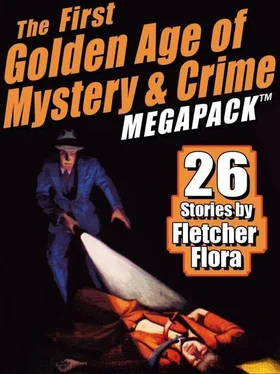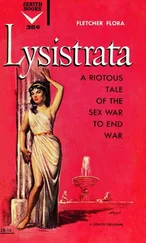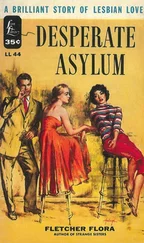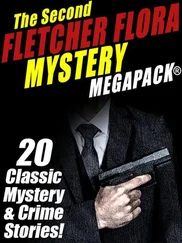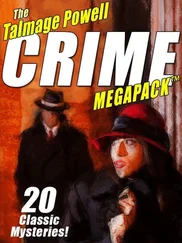“Who said you could?”
“Nobody said it, Colby. I was just explaining why we couldn’t put out the fire.”
“That’s fine, Rudy. I appreciate your explaining these difficult things to me. Now maybe you’d be good enough to explain why the hell a deputy sheriff has to patrol a lousy burning haystack.”
“We just stopped to see if there was anything we could do, Colby.”
“I’m not talking about that. I’m talking about Virgil.”
“Why he stayed out there, you mean?”
“Now you’re getting it, Rudy. Why did Virgil stay out there?”
“I was coming to that, Colby. It turned out there was a body in the fire. We’d been smelling something and wondering what it was, and it turned out to be this body. Soon as the smoke had thinned and the fire had burned down some, we could see it lying in there. The way I figure it, someone must have put it in there and then started the fire. I don’t figure it likely that anyone would just go to sleep on a haystack and burn to death without ever waking up and getting the hell out of it. Do you, Colby?”
“No, I don’t, Rudy. That’s good thinking. Now here’s a minor point I wish you’d concentrate on. Did you identify the body? I mean, do you know whose it is?”
“Well, you know what happens to something in a fire, Colby. It gets burned up pretty much. I couldn’t swear who it is, and neither could Virg, but it’s a woman, anyhow, and Crawley Bratton says it’s his wife Faye.”
“What makes him think so?”
A guy ought to know his own wife better than anyone else, Colby. That’s what I figure. Soon as we saw her in the fire, Virg rolled her out with a fork one of the farmers had with him, and Crawley got a close look before it made him sick and he had to quit looking. He says it’s Faye, all right. Even if he hadn’t known her anyhow, he says, he’d have known her from the little chain she wore around her left ankle. Crawley’s all busted up about it.”
“Is Faye missing?”
“Now, Colby, if she’s dead she’s bound to be missing. What I mean is, she ain’t around the same as the rest of us.”
“That’s true, Rudy. I don’t know why I didn’t think of that myself. Well, I better get on out there to Crawley’s place, I guess. You stay here and look after the mail, and if Lard Lavino comes back for the supper things, you tell him I said to get the God-damn lumps out of the mashed potatoes next time.”
“Well, that reminds me, Colby. I ain’t had any supper myself, and I’m pretty hungry. Do you mind if I finish yours?”
On my plate, the glob of mashed potatoes, smeared with cold cream gravy, looked like something that had already been eaten. I contained a belch and nodded. It was incredible, I thought, what could sometimes happen to a man in the way of cousins.
“Help yourself,” I said. “Watch your bridgework on that steak.”
In the patrol car, I drove west to Crawley Bratton’s place, about three miles out of town. My watch said almost seven when I got there. Light was draining slowly out of the long dusk, but it would be another hour before the dusk deepened into night. Behind Crawley’s house and barn, far back in a field against the black line of timber along the creek, I could see a small group of men standing in the red glow of what was left of the haystack. Leaving the patrol car in the barnyard, I walked down a long lane between parallel fences of barbed wire and across a pasture into the field, lying fallow, in which the stack had stood.
As I came nearer, I began to pick up the smell, getting stronger and stronger, of charred flesh. Human flesh. Flesh, if it was truly Faye Bratton’s, that would be remembered, if briefly, by more men than Crawley Bratton cared to think about. Virg Carpenter detached himself from the group in the red glow and walked a few steps into the shadows to meet me. Virg was a big guy, hanging over his belt, with a taste for purple shirts and black string ties. He was a pretty good deputy, all in all, and what he wanted more than anything else was to be a pretty good sheriff. I didn’t have any objections, particularly, after I was through with the office.
“We got something big this time, Colby,” he said.
“Rudy said it’s Fay Bratton,” I said.
“That’s who it is. What’s left of her.”
“You sure of it?”
“Crawley says so. Crawley ought to know. There’s one of these little chains around her left ankle. I remember seeing it lots of times myself.”
“Where’s Crawley now?”
“Up at the house. He was all busted up, Colby. I didn’t think it would do any harm to let him go up there.”
“I didn’t see any light in the house when I came by.”
“Maybe he likes to sit in the dark.”
“Maybe. You called the coroner?”
“I told Crawley to call from the house.”
“Good. It’s just routine, anyhow. The bastard can’t diagnose anything but rigor mortis. Where’s the body?”
“Over there on the ground. Just follow your nose. We got a piece of canvas out of Crawley’s barn to cover her with.”
I followed my nose to a dark heap at the edge of a red perimeter. Pulling the canvas back at one end, I stared for a moment at a black blister that might have been the face of Faye Bratton. Reversing ends, I looked at the ankle chain. Like Virg, I had noticed it on her before. Like Virg, like Crawley, like Tom and Dick and Harry. Lots of men had noticed lots of things about Faye. She’d had her share of playing in the hay, so to speak, and now she’d burned in it. Faye in the hay. An appropriate ending after all. A kind of epitaph.
One of seven, the sixth of the litter, an earthy beauty from the time of her tender years, she might have exploited herself to her own great advantage if only she’d had the brains to develop an imagination and a vision. Instead, she had married Crawley Bratton, or Crawley’s half-section of rich land, when she was eighteen and Crawley was twenty-six. To her, fresh off the thin soil of the north part of the county, straying south with hot eyes and swivel hips, Crawley’s fine farm and solid bank account had probably seemed like fabulous spoils. With a little excitement on the side, a man here and a man there, even Crawley himself could be accepted as a necessary part of a bargain. As for Crawley, ordinarily a sharp guy in any kind of deal, it was simply a matter of glands over brains. They had been married about four years ago, and now here they were at the end of their time, a cinder lying in a fallow field and a man alone in an unlighted house.
“It’s Faye, all right,” I said, standing. “I’d better go up and talk to Crawley. Get these other guys out of here, Virg. Send them home. You wait for the coroner. He’ll probably want you to help him decide if she’s dead.”
“Sure, Colby. We ought to have a real doctor, instead of some guy just after a political plum.”
“Well, don’t complain, Virg. We got an undertaker, and that’s next best thing. Even better, maybe, come to think of it. After a doctor says a guy’s dead, he’s finished. There’s still something left for an undertaker to do. Puts it all in one neat little package.”
“Something left for us to do, too, Colby. You got any ideas?”
“Not yet. Nothing to speak of.”
“She was a prowler, Colby. You know that. Kept old Crawley’s guts in the sauce pan all the time. Lots of guys might have done it for one reason or another.”
“Sure, sure. I know that. What I can’t figure is all this hocus pocus here. Why this crazy bonfire?”
“Hell, Colby, that seems plain enough.”
“Does it? Tell me why.”
“Well, damn it, to get rid of the body. At least burn it enough so it maybe couldn’t be recognized.”
“You sound like Rudy now.”
Читать дальше
